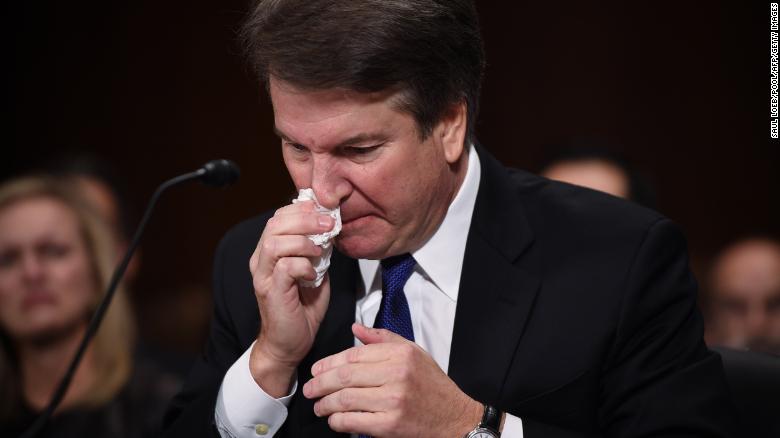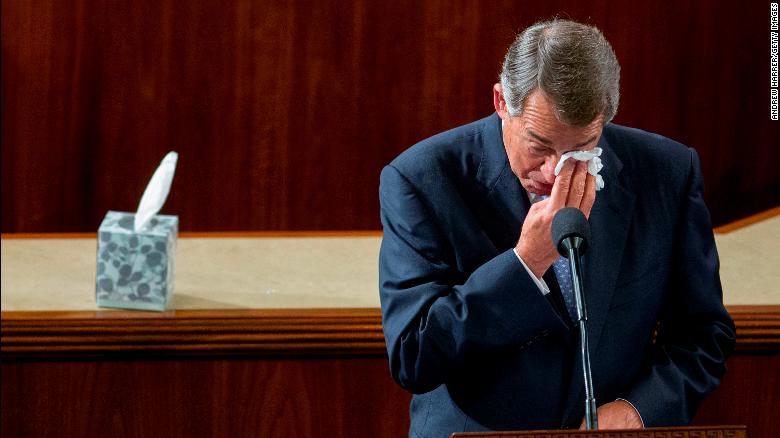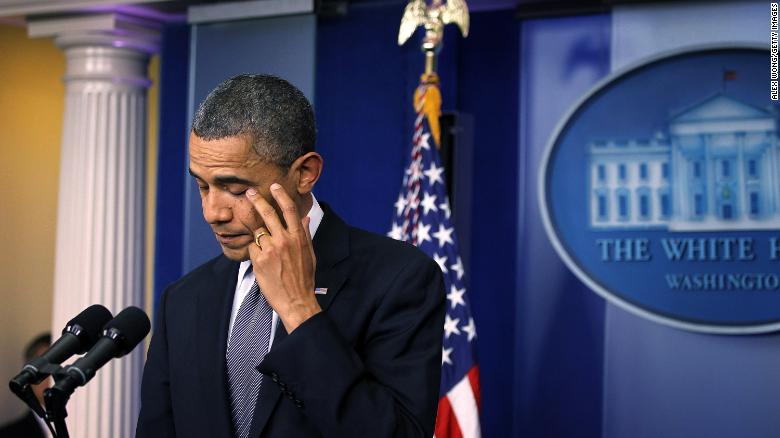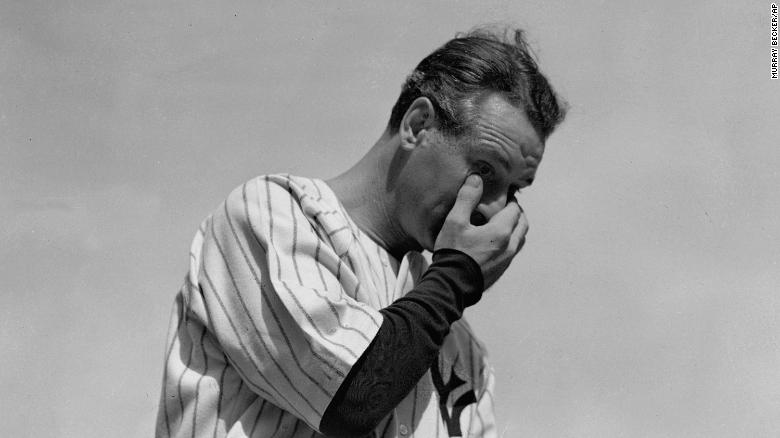When men cry in public
Michael D'Antonio is author of the book "Never Enough: Donald Trump and the Pursuit of Success" (St. Martin's Press). The opinions expressed in this commentary are his. View more opinion articles on CNN.
(CNN)With tears flowing repeatedly, Brett Kavanaugh angrily denied allegations of sexual misconduct as he appeared Thursday before the Senate Judiciary Committee. The airing of the allegations, he insisted, was not just a moment of crisis for him but a "national disgrace," and the controversy had "destroyed" his family.
In a previous generation, in 1972, a display of emotion by presidential candidate Ed Muskie, who appeared to cry as he defended the honor of his wife, Jane, helped end his hopes for higher office. (Later, observers conceded that it might have been melting snow, rather than tears, on Muskie's cheek.)
Judgments on Kavanaugh's emotional performance will likely depend on each viewer's perspective, but he demonstrated the wider latitude that men in politics have today to show their emotions. However, were he a woman, he would likely be dismissed as overwrought, even hysterical, which helps explain why the witness who testified before him, Christine Blasey Ford, was far more composed and restrained.

Supreme Court nominee Judge Brett Kavanaugh testifies before the Senate Judiciary Committee.
If Republican Senators waffle on support for Kavanaugh's nomination, the most important judgment will be rendered by Donald Trump. Gabriel Sherman of Vanity Fair tweeted, "The crying has unnerved some White House aides, source says. 'People don't know why he is crying.'"
For Trump, who would seemingly rather risk a man keeling over from a heart attack than indulging his feelings, the display was likely an exasperating development. "When I see a man cry I view it as a weakness," Trump once told writer Timothy O'Brien. "I don't like seeing men cry."

US House Speaker John Boehner wipes his eyes as he gives a farewell speech on October 29, 2015.
Still, the President immediately tweeted his support for Kavanaugh as soon as the hearing ended:
"Judge Kavanaugh showed America exactly why I nominated him. His testimony was powerful, honest, and riveting. Democrats' search and destroy strategy is disgraceful and this process has been a total sham and effort to delay, obstruct, and resist. The Senate must vote!"
As a nominee for the Supreme Court who no doubt believed he would soon be approved by the Senate, Kavanaugh's feelings are easy to understand. He was suddenly made the subject of three separate accusations of sexual misconduct and was on a mission to clear himself. Ford, the first accuser and the only one the Republicans who control the committee will hear, alleged he attacked her when they were teens.

President Barack Obama wipes tears as he makes a statement in response to the elementary school shooting in Connecticut on December 14, 2012.
Such an allegation, in addition to the others, would disturb anyone who is accused, but as Kavanaugh let his emotions show, it was easy to imagine Trump growing impatient, if not disgusted.
A man firmly planted in the ethos of the 1950s male, Trump would no more cry in such a setting than admit that he was elected president with the aid of the Russians. He has, himself, faced more than a dozen allegations of sexual misconduct and never once reacted with anything but a dismissive attitude. To see Kavanaugh weep must have galled the man who named him to the court.

New York Yankees' Lou Gehrig wipes away a tear while speaking during a sold-out tribute at Yankee Stadium on July 4, 1939. Gehrig's record breaking career was cut short by neuromuscular disease.
Attitudes about masculinity have changed a lot in the decades since Trump's youth. Former Speaker of the House John Boehner was so sentimental that he teared up over almost anything, and Presidents Clinton, Bush, and Obama have shed tears in moments of tragedy or mourning. The difference is that, at least in public, these men did not cry in anger, or because their own feelings were hurt.
President Trump is not part of the Washington crying crowd. He is the man who called Senator Charles Schumer "cryin' Chuck" when he teared up in early 2017. In 2015, Trump calledbroadcaster Glenn Beck "wacky" and "worse than Boehner" because he got emotional on his show.
Recent decades have seen greater acceptance for open displays of emotion. As one writer at a website devoted to boosting positive images of modern men recently argued, "Real men do cry."
Whether or not the crying went over well at the White House, Kavanaugh has retained the President's support. And if Kavanaugh is backed by the Republican majority in the Senate, he'll be on the Supreme Court.



















No comments:
Post a Comment